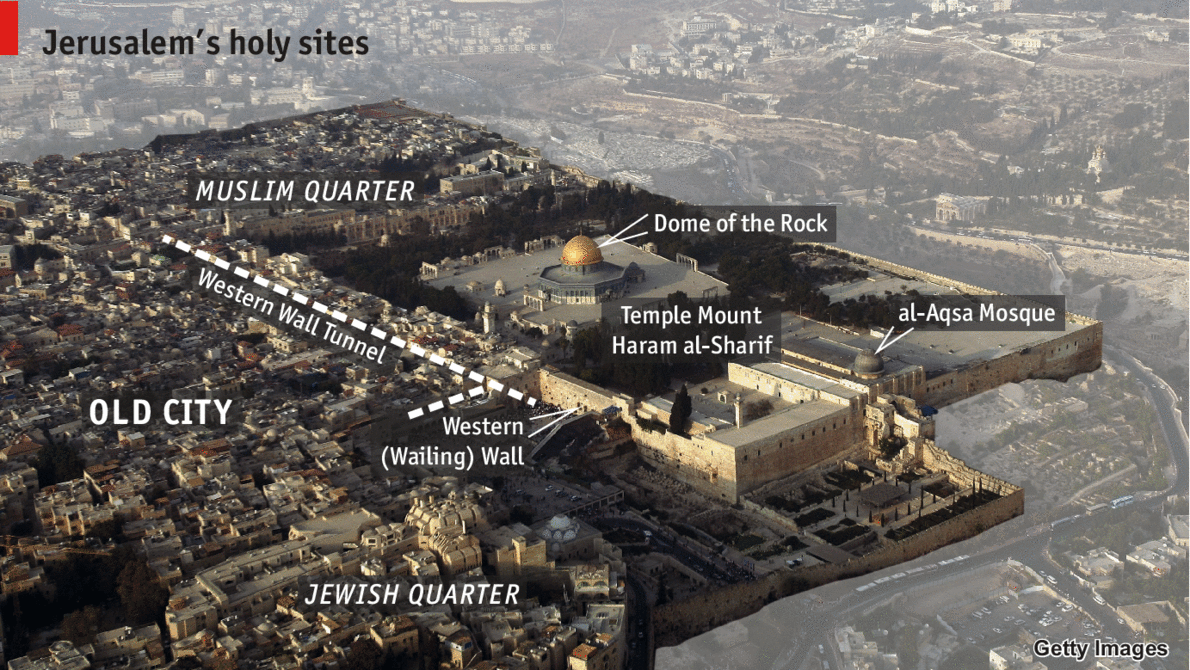Follow the link for the full essay. The following is from the conclusion.

Politics, not religious sensibility, has fueled the Muslim attachment to Jerusalem for nearly fourteen centuries; what the historian Bernard Wasserstein has written about the growth of Muslim feeling in the course of the Countercrusade applies through the centuries:
"often in the history of Jerusalem, heightened religious fervour may be explained in large part by political necessity."This pattern has three main implications.
First, Jerusalem will never be more than a secondary city for Muslims; "belief in the sanctity of Jerusalem... cannot be said to have been widely diffused nor deeply rooted in Islam."
Second, the Muslim interest lies not so much in controlling Jerusalem as it does in denying control over the city to anyone else.
Third, the Islamic connection to the city is weaker than the Jewish one because it arises as much from transitory and mundane considerations as from the immutable claims of faith.
Mecca, by contrast, is the eternal city of Islam, the place from which non-Muslims are strictly forbidden. Very roughly speaking, what Jerusalem is to Jews, Mecca is to Muslims – a point made in the Qur'an itself (2:145) in recognizing that Muslims have one qibla and "the people of the Book" another one. The parallel was noted by medieval Muslims; the geographer Yaqut (1179-1229) wrote, for example, that "Mecca is holy to Muslims and Jerusalem to the Jews."
In modern times, some scholars have come to the same conclusion: "Jerusalem plays for the Jewish people the same role that Mecca has for Muslims," writes Abdul Hadi Palazzi, director of the Cultural Institute of the Italian Islamic Community.
The similarities are striking. Jews pray thrice daily to Jerusalem and Muslims five times to Mecca. Muslims see Mecca as the navel of the world, just as Jews see Jerusalem. Whereas Jews believe Abraham nearly sacrificed Ishmael's brother Isaac in Jerusalem, Muslims believe this episode took place in Mecca. The Ka'ba in Mecca has similar functions for Muslims as the Temple in Jerusalem for Jews (such as serving as a destination for pilgrimage). The Temple and Ka'ba are both said to be inimitable structures. The supplicant takes off his shoes and goes barefoot in both their precincts. Solomon's Temple was inaugurated on Yom Kippur, the tenth day of the year, and the Ka'ba receives its new cover also on the tenth day of each year. If Jerusalem is for Jews a place so holy that not just its soil but even its air is deemed sacred, Mecca is the place whose "very mention reverberates awe in Muslims' hearts," according to Abad Ahmad of the Islamic Society of Central Jersey.
No comments:
Post a Comment